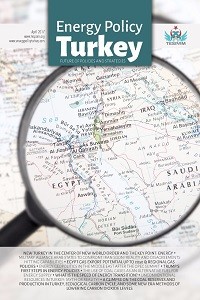Abstract
References
- 1 http://www.livemint.com/Politics/Eoz1xyHtuRNf7nQ4yc4QQI/Saudi-Arabia-will-work-with-Donald-Trump-on-containing-Iran.html 2 https://www.wsj.com/articles/u-s-middle-east-allies-explore-arab-military-coalition-1487154600 https://www.theguardian.com/world/2017/feb/01/iran-trump-michael-flynn-on-notice https://www.nytimes.com/2017/02/09/world/middleeast/trump-arabs-palestinians-israel.html?_r=0 http://www.thetower.org/4585-fmr-israeli-national-security-advisor-more-israeli-arabcooperation-is-realistic/ https://www.alaraby.co.uk/english/news/2017/2/17/trump-wants-israel-arabs-to-buddy-upagainst-iran 3 http://gpf-europe.com/forum/?blog=security&id=181 4 http://www.globalfirepower.com/countries-listing-middle-east.asp https://new.csis.org/analysis/gulf-military-balance-volume-iii https://www.csis.org/analysis/iran-and-gulf-military-balance-1 5 http://www.washingtoninstitute.org/policy-analysis/view/the-purpose-of-saudi-arabias-islamicmilitary-coalition http://www.reuters.com/article/saudi-security-idUSKBN0TX2KY20151215 6 http://www.theglobeandmail.com/news/world/34-nation-islamic-military-alliance-to-fightterrorism-saudi-arabia-says/article27754964/ 7 http://www.israeldefense.co.il/en/node/28177 http://www.upi.com/Defense-News/2017/01/31/Egypt-boosts-navy-as-part-of-Red-Seastrategy/5481485879584/ 8 http://www.independent.co.uk/news/world/middle-east/egypt-court-blocks-transfer-of-red-seaislands-tiran-sanafir-saudi-arabia-protests-anger-aid-package-a7530981.html 9 http://english.aawsat.com/2013/12/article55325072/gcc-joint-military-command-to-be-basedin-riyadh-source http://www.tandfonline.com/doi/abs/10.1080/03071847.2014.990811?src=recsys&journalCode=rusi20 http://www.al-monitor.com/pulse/iw/originals/2013/12/saudi-arabia-military-gulf-unionregional-leadership.amp.html 10 http://www.cbn.com/cbnnews/world/2015/March/Egypt-Saudi-Arabia-Lead-Push-for-Joint-Arab-Force/?Print=true http://weekly.ahram.org.eg/News/10903/19/Pondering-a-joint--Arab--force.aspx https://www.rt.com/news/245009-arab-joint-force-agreed/ 11 http://www.economist.com/news/middle-east-and-africa/21710912-series-incidents-hasdisrupted- relationship-between-arab-worlds https://www.nytimes.com/2016/12/02/world/middleeast/syria-assad-egypt-turkey.html https://www.middleeastobserver.org/2016/10/13/unofficial-war-of-words-between-egypt-andsaudi-arabia/ https://www.middleeastobserver.org/2016/11/08/a-new-step-in-to-the-russian-axis/ http://oilprice.com/Energy/Energy-General/A-Seismic-Shift-In-The-Middle-East-Saudi-Arabia-Cuts-Of-Egyptian-Oil.html 12 http://www.thenational.ae/world/middle-east/gcc-seeks-formal-us-security-pact http://www.aljazeera.com/news/2015/05/rules-gulf-treaty-arab-150513194012726.html http://www.kuna.net.kw/ArticlePrintPage.aspx?id=2440414&language=en 13 Oman has joined IMAFT at the end of 2016, after long discussions and assessing its own strategic position not only in the GCC but foremost with regards to its long-standing and very deep economic relations with Iran. https://www.alaraby.co.uk/english/news/2016/12/29/neutraloman-joins-saudi-led-military-coalition http://www.reuters.com/article/us-saudi-oman-coalition-idUSKBN14H1L4 14 http://europe.newsweek.com/who-bombing-libya-us-says-its-egypt-uae-266599?rm=eu http://www.defenceweb.co.za/index.php?option=com_content&view=article&id=45894:uaehas-deployed-aircraft-to-eritrea-libya&catid=35:Aerospace&Itemid=107 http://english.aawsat.com/2017/02/article55366900/egypt-uae-agree-fight-terrorism-solve-crisissyria-libya 15 https://www.linkedin.com/pulse/thinking-unthinkable-2-saudi-military-ground-syria-cyrilwiddershoven 16 http://www.tradingeconomics.com/turkey/exports-to-saudi-arabia https://www.middleeastobserver.org/2017/02/09/turkey-saudi-arabia-cooperation-contributesto-stability/ http://www.defensenews.com/story/defense/policy-budget/industry/2016/01/03/officialsturkish-firms-eye-billions-in-saudi-defense-contracts/78237080/ 17 ttps://www.dailysabah.com/op-ed/2016/10/28/can-turkey-pakistan-and-saudi-arabia-form-asecurity-alliance 18 http://english.alarabiya.net/en/views/news/middle-east/2017/02/18/Turkey-the-Gulf-andregional-ownership.html 19 http://www.thenational.ae/saudi-leaders-host-erdogan-ahead-of-syria-talks 20 http://www.israelhayom.com/site/newsletter_article.php?id=35191 https://www.middleeastobserver.org/2016/10/20/indicators-of-semi-official-saudinormalization-with-israel/ http://www.atimes.com/article/us-concerned-as-saudi-arabia-israel-move-closer-to-thwart-iran/ 21 http://www.eurasiareview.com/18072016-can-saudi-arabia-count-on-pakistans-support-for-sunnialliance- against-terrorism-analysis/
Military Alliance Arab States To Confront Iran Soon? Reality And Disagreements Hitting Capabilities
Abstract
Since the end of 2016, alliances
in the Middle East again have become very fluid. Internal pressure, regional
aspirations and the fall-out of the new Trump Administration, are having a
detrimental effect on the region’s military-political constellation. After
several years of a Sunni-Shi’a confrontation in Syria and Yemen, which has led
to the setup of a Sunni-led military alliance, bringing together Arab, African
and Asian countries, including Turkey, Trump’s Administration now has put its
weight behind it too.1 Several American advisors of Trump’s skeleton
government already have called for an increased Arab-Israeli cooperation to
confront the ongoing power build-up of Iran and its regional allies.2 The
Middle East seems to be heading to a military showdown if no diplomatic
breakthrough is popping up. The Sunni-Shi’a power struggle, partly supported by
the ongoing Russian power projections in the Levant and North Africa, could
lead to military clashes not only in the Persian Gulf, Yemen, Syria, but spread
even to the North-Africa/Red Sea arena3. No clear picture can yet be painted
with regards a possible military upper-hand, as both sides are not very
transparent about their real capabilities4. To block Iran’s perceived
encroachment on Sunni grounds, the Sunni military alliance or “Islamic Military
Alliance to Fight Terrorism (IMAFT)” is being set up. The future success
however is decided by three Arab members, Saudi Arabia, Egypt and the UAE,
while Turkey (as the only NATO member) is playing an ever-growing role in the
setup the last months.
At the end 2015 Sunni Islamic
countries have set up a global military alliance, which was at the start being
proponed as a global fight against terrorism. At least, the official reason for
founding father Saudi Arabia was that it is an “Islamic Military Alliance to
Fight Terrorism (IMAFT)”5. The latter included from the beginning mostly Arab
GCC and North African countries, but excluded Iran, Iraq, Syria and Yemen.
Several other countries from Africa and Asia, especially Pakistan, have been
included from the start. This obvious division of Sunni-Shi’a military
cooperation has however taken over and led to a full-fledged anti-Iran
strategy.
References
- 1 http://www.livemint.com/Politics/Eoz1xyHtuRNf7nQ4yc4QQI/Saudi-Arabia-will-work-with-Donald-Trump-on-containing-Iran.html 2 https://www.wsj.com/articles/u-s-middle-east-allies-explore-arab-military-coalition-1487154600 https://www.theguardian.com/world/2017/feb/01/iran-trump-michael-flynn-on-notice https://www.nytimes.com/2017/02/09/world/middleeast/trump-arabs-palestinians-israel.html?_r=0 http://www.thetower.org/4585-fmr-israeli-national-security-advisor-more-israeli-arabcooperation-is-realistic/ https://www.alaraby.co.uk/english/news/2017/2/17/trump-wants-israel-arabs-to-buddy-upagainst-iran 3 http://gpf-europe.com/forum/?blog=security&id=181 4 http://www.globalfirepower.com/countries-listing-middle-east.asp https://new.csis.org/analysis/gulf-military-balance-volume-iii https://www.csis.org/analysis/iran-and-gulf-military-balance-1 5 http://www.washingtoninstitute.org/policy-analysis/view/the-purpose-of-saudi-arabias-islamicmilitary-coalition http://www.reuters.com/article/saudi-security-idUSKBN0TX2KY20151215 6 http://www.theglobeandmail.com/news/world/34-nation-islamic-military-alliance-to-fightterrorism-saudi-arabia-says/article27754964/ 7 http://www.israeldefense.co.il/en/node/28177 http://www.upi.com/Defense-News/2017/01/31/Egypt-boosts-navy-as-part-of-Red-Seastrategy/5481485879584/ 8 http://www.independent.co.uk/news/world/middle-east/egypt-court-blocks-transfer-of-red-seaislands-tiran-sanafir-saudi-arabia-protests-anger-aid-package-a7530981.html 9 http://english.aawsat.com/2013/12/article55325072/gcc-joint-military-command-to-be-basedin-riyadh-source http://www.tandfonline.com/doi/abs/10.1080/03071847.2014.990811?src=recsys&journalCode=rusi20 http://www.al-monitor.com/pulse/iw/originals/2013/12/saudi-arabia-military-gulf-unionregional-leadership.amp.html 10 http://www.cbn.com/cbnnews/world/2015/March/Egypt-Saudi-Arabia-Lead-Push-for-Joint-Arab-Force/?Print=true http://weekly.ahram.org.eg/News/10903/19/Pondering-a-joint--Arab--force.aspx https://www.rt.com/news/245009-arab-joint-force-agreed/ 11 http://www.economist.com/news/middle-east-and-africa/21710912-series-incidents-hasdisrupted- relationship-between-arab-worlds https://www.nytimes.com/2016/12/02/world/middleeast/syria-assad-egypt-turkey.html https://www.middleeastobserver.org/2016/10/13/unofficial-war-of-words-between-egypt-andsaudi-arabia/ https://www.middleeastobserver.org/2016/11/08/a-new-step-in-to-the-russian-axis/ http://oilprice.com/Energy/Energy-General/A-Seismic-Shift-In-The-Middle-East-Saudi-Arabia-Cuts-Of-Egyptian-Oil.html 12 http://www.thenational.ae/world/middle-east/gcc-seeks-formal-us-security-pact http://www.aljazeera.com/news/2015/05/rules-gulf-treaty-arab-150513194012726.html http://www.kuna.net.kw/ArticlePrintPage.aspx?id=2440414&language=en 13 Oman has joined IMAFT at the end of 2016, after long discussions and assessing its own strategic position not only in the GCC but foremost with regards to its long-standing and very deep economic relations with Iran. https://www.alaraby.co.uk/english/news/2016/12/29/neutraloman-joins-saudi-led-military-coalition http://www.reuters.com/article/us-saudi-oman-coalition-idUSKBN14H1L4 14 http://europe.newsweek.com/who-bombing-libya-us-says-its-egypt-uae-266599?rm=eu http://www.defenceweb.co.za/index.php?option=com_content&view=article&id=45894:uaehas-deployed-aircraft-to-eritrea-libya&catid=35:Aerospace&Itemid=107 http://english.aawsat.com/2017/02/article55366900/egypt-uae-agree-fight-terrorism-solve-crisissyria-libya 15 https://www.linkedin.com/pulse/thinking-unthinkable-2-saudi-military-ground-syria-cyrilwiddershoven 16 http://www.tradingeconomics.com/turkey/exports-to-saudi-arabia https://www.middleeastobserver.org/2017/02/09/turkey-saudi-arabia-cooperation-contributesto-stability/ http://www.defensenews.com/story/defense/policy-budget/industry/2016/01/03/officialsturkish-firms-eye-billions-in-saudi-defense-contracts/78237080/ 17 ttps://www.dailysabah.com/op-ed/2016/10/28/can-turkey-pakistan-and-saudi-arabia-form-asecurity-alliance 18 http://english.alarabiya.net/en/views/news/middle-east/2017/02/18/Turkey-the-Gulf-andregional-ownership.html 19 http://www.thenational.ae/saudi-leaders-host-erdogan-ahead-of-syria-talks 20 http://www.israelhayom.com/site/newsletter_article.php?id=35191 https://www.middleeastobserver.org/2016/10/20/indicators-of-semi-official-saudinormalization-with-israel/ http://www.atimes.com/article/us-concerned-as-saudi-arabia-israel-move-closer-to-thwart-iran/ 21 http://www.eurasiareview.com/18072016-can-saudi-arabia-count-on-pakistans-support-for-sunnialliance- against-terrorism-analysis/
Details
| Subjects | Economics |
|---|---|
| Journal Section | Articles |
| Authors | |
| Publication Date | May 1, 2017 |
| Published in Issue | Year 2017 Issue: 3 |
Cite
Energy Policy Turkey is a Trade Mark of TESPAM

